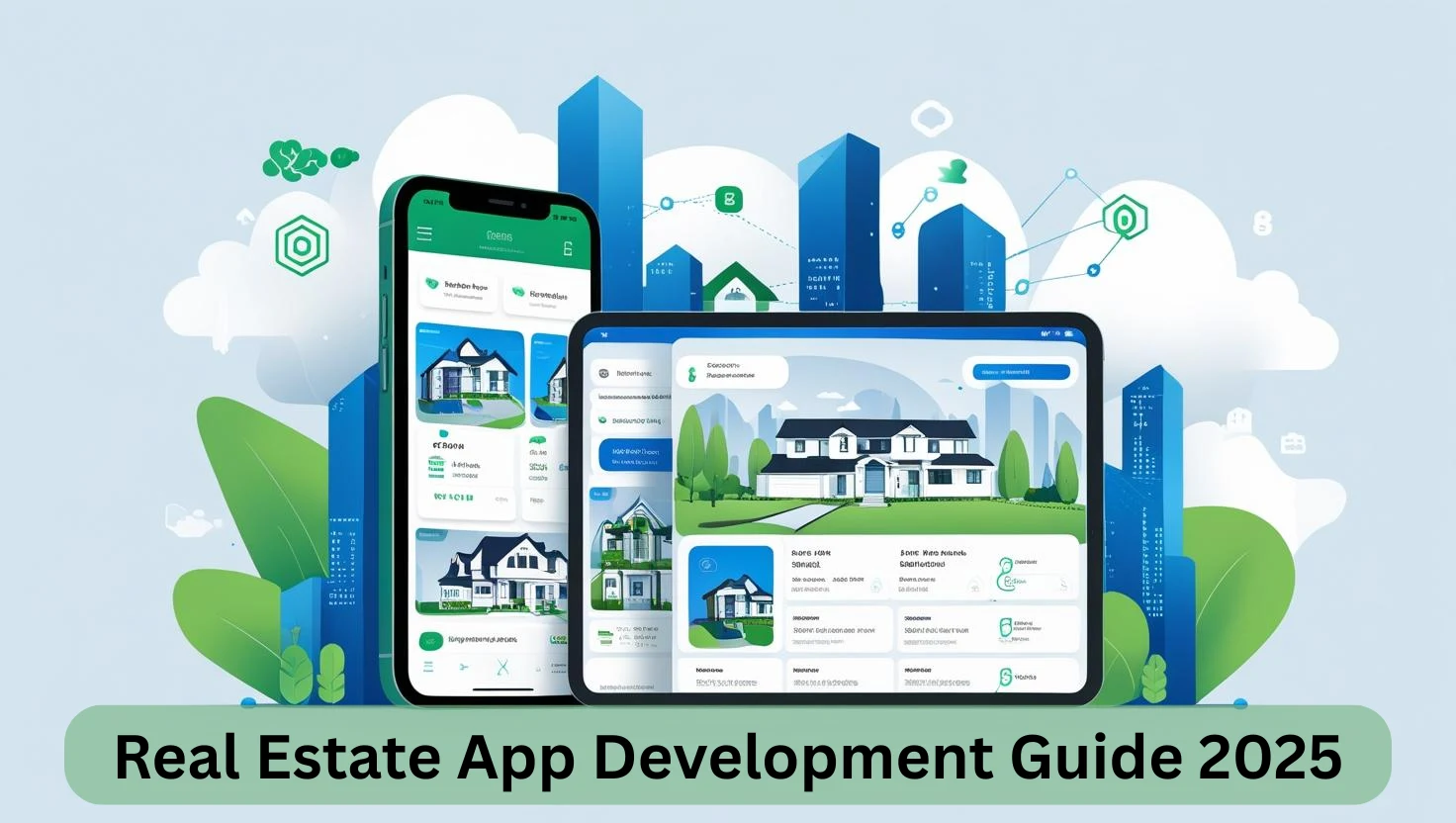Real estate is a fast-paced industry, and mobile apps have changed it for good for the buyers, sellers, agents, and investors! Especially in the time of an increased dependence on digital solutions, real estate app development has become an essential formula that every business has to explore in order to keep up with the competition and cater to changing client needs.
Understanding Real Estate App Development
Real estate app development process refers to the designing of mobile or web-based apps that help enable different kinds of real estate transactions or services. These apps have heated up property searching, listing, virtual tour, and client-agent connect for an improved UX and more efficient operations.
Key Features of Real Estate Mobile Apps
A successful real estate mobile app will have the features that the users expect it to have. Some of the core features are:
- Advanced Search and Filter Options: Let your users filter properties based on location, price, type, and property features.
- Interactive Maps: Add geolocation capabilities to showcase property locations, nearby points of interest, and neighborhood information.
- Virtual Tours and 3D Visualization: Offer virtual or 3D models, allowing users to guide themselves through properties without needing to be there.
- User Profiles and Dashboards: Provide users the ability to save their searches, favorite listings, and even create multiple search profiles and listing alerts.
- In-App Communication Options: Allow users direct communication with buyers, agents, and sellers with chatting or call functionality.
- Calendar and Meeting scheduling: Allow for easy scheduling of property appointments and agent meetings.
- Push Notifications: Update users on new listings, price changes, and open houses.
Types of Real Estate Apps
Real estate apps can be classified according to their purposes and end users:
- Apartment-Listing Apps: Services such as Zillow and Trulia collect property listings for buyers and renters.
- Marketplace Real Estate Apps: These are the apps that link buyers to sellers directly, with the most common features to include are bidding and direct negotiations.
- Property Management Apps: Apps that allow landlords and property managers to manage rental properties, maintenance requests, and communicate with tenants.
- Agent/Broker Apps: Apps for real estate professionals to manage relationships, listings, and deals.
- Investment and Analytics Apps: Apps showcase the market analysis, investment opportunities, and financial forecasting for investors.
Real Estate App Development Process
Various stages for creating an app for real estate include:
- Market Research and Requirement Analysis: Identify the target audience, market, and needs, and form the app’s goals.
- User experience and design: We will build interfaces that are intuitive and easy to use, resulting in more satisfied users.
- Development: Select the right technology and framework to develop both the front end and back end of the app.
- Feature Integration: Implement must-have features like search and filters, map, virtual tours, and communication.
- Testing and Quality Assurance: Rigorously test and resolve bugs to maintain the reliability and performance of the app.
- Deployment and Launch: Deploy the app on the appropriate platforms (iOS, Android) -Tracking the app’s performance post-launch
- Maintenance and Updates: Good applications are often updated to include new functionality, to enhance security, or to respond to user feedback.
Cost of Real Estate App Development
The development of real estate app costs depends on various factors such as app complexity, features, location of the app development team, and even the type of technology stack you choose.
- Basic Apps: $25,000 to $45,000
- Moderate Complexity Apps: $50,000 to $100,000
- Advanced Apps with AI and Web3 Integration: $100,000 to $300,000+
It’s essential to consult with a reputable real estate app development company to obtain accurate cost estimates tailored to specific project requirements.
Choosing the Right Real Estate App Development Company
Choosing a reliable real estate mobile app development company is one of the two key important aspects for your project to succeed. Here are some things to factor into your decision:
- Experience and Portfolio: Look at what the company has accomplished in the past, particularly any work in real estate app development.
- Technical Skills: Make it clear that the company is competent in the latest technologies, such as AI/AR/VR/blockchain.
- Client Comments and Reviews: Ask previous clients to know the trustworthiness and service of the company.
- Post-Release Services: Ensure the vendor provides support and updates down the line.
Emerging Trends in Real Estate App Development
Here are some of the developments in the real estate scene that are going to shape the way apps are going to be developed in the future:
- AI and Machine Learning: Improving suggestions of properties, price estimations, and chatbots in providing customer service.
- AR/VR: For immersive tours of the property.
- Blockchain Technology: Ensuring secure and transparent property transactions.
- Web3 Integration: Decentralizing real estate platforms to empower users with more control over their data and transactions.
Conclusion:
Investing in real estate app development is a strategic move for businesses aiming to thrive in the digital age. By leveraging advanced technologies and focusing on user-centric designs, companies can offer unparalleled services, streamline operations, and stay ahead in the competitive real estate market. Collaborating with an experienced real estate mobile app development company ensures the delivery of robust, scalable, and innovative solutions tailored to meet the evolving demands of the industry.

